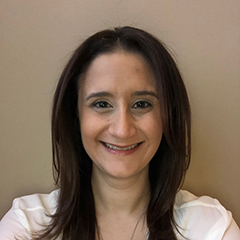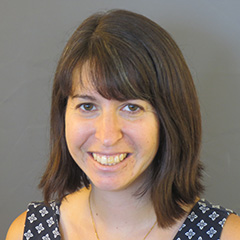-
About the RELs
+
-
For more than 50 years, the RELs have collaborated with school districts, state departments of education, and other education stakeholders to help them generate and use evidence and improve student outcomes. Read more
-
- Regions +
- Products
-
Topics
+
- Achievement Gap Career Readiness Charter Schools College Readiness COVID-19 Data Use Discipline Dropout Prevention
- Early Childhood Education English Language Learners Equity Literacy Mathematics Online Courses Postsecondary Education Principals
- Research Tools Rural Schools Social Emotional Learning Special Education Student Characteristics Teacher Effectiveness Teacher Persistence Teacher Recruitment
- Events
- Blog
- Connect with Us +
Home REL Mid-Atlantic About REL Mid-Atlantic Our Team
Our Team

Brian Gill
Brian Gill serves as the Director for REL Mid-Atlantic, as well as lead for the Accountability Community of Practice partnership. Dr. Gill has worked closely with state and local education agencies, nonprofits, and funders in the Mid-Atlantic region for more than a decade, providing technical support, communicating research findings, and producing reports that have informed education policy in the region and beyond. He has established connections with dozens of policymakers and education stakeholders across all the states and several districts in the region and has extensive experience meeting their diverse needs, ranging from the refinement of accountability systems to the development of improved measures of school and educators’ performance. Dr. Gill can be contacted at RELMidAtlantic@mathematica.org.

AnnaMaria McCutcheon
AnnaMaria McCutcheon serves as the Deputy Director for REL Mid-Atlantic, as well as lead for the partnership on improving post-high school transitions for students with disabilities. Ms. McCutcheon has 15 years of experience effectively managing projects. She directly oversees the operations and project teams to meet client and partner needs in the region. Ms. McCutcheon ensures high quality, timely, and cost-effective work through strong collaboration, deep understanding of partner needs, and application of project management best practices. She has extensive experience on other education projects such as REL Peer Review and the What Works Clearinghouse. McCutcheon has successfully applied human-centered design and continuous improvement techniques to improve service delivery in human services programs. She holds an M.B.A. and is a certified Project Management Professional (PMP). Ms. McCutcheon can be contacted at RELMidAtlantic@mathematica.org.

Christine Ross
Christine Ross leads the partnership on using data to foster supportive learning environments and social-emotional wellness. Dr. Ross has worked with policymakers and practitioners throughout the Mid-Atlantic region to conduct high quality research that builds partners’ capacity to use data to improve student outcomes, including measures of school climate and early education outcomes. Her experience spans studies that use a range of methodologies, including implementation studies and RCTs. Dr. Ross previously led a research alliance on early education from birth through grade 3 and she has served as principal investigator for the WWC’s early childhood area. Dr. Ross can be contacted at RELMidAtlantic@mathematica.org.

Allison McKie
Allison McKie leads the efficacy study for the toolkit supporting the What Works Clearinghouse writing practice guide. Dr. McKie is also the partnership task lead, working closely with education partners across the Mid-Atlantic region to develop logic models and identify outcomes to guide project work. Throughout her career, she has conducted educational reform research and helped educators use data to strategically improve teachers’ effectiveness and increase students’ college readiness. Dr. McKie can be contacted at RELMidAtlantic@mathematica.org.

Steven Malick
Steven Malick leads the REL Mid-Atlantic training, coaching, and technical support efforts and a partnership focused on enhancing a multi-tiered system of supports. Malick specializes in working with districts, states, and other organizations to understand and apply evidence in service of improving educator effectiveness and student achievement. An experienced facilitator of adult learning experiences, Malick often employs human-centered design principles and continuous improvement framework to help educators unpack the challenges they face and realize evidence-informed approaches to tackle those challenges. This work has included consulting with clients to help them apply data and research; designing and facilitating workshops, webinars, and communities of practice; assembling expert feedback to inform clients’ efforts; and distilling research on complex topics into easy-to-read briefs. These technical assistance activities have helped clients increase the diversity of the teacher workforce, develop social-emotional competencies in children, and accelerate implementation of research-based strategies. Malick can be contacted at RELMidAtlantic@mathematica.org.

Julie Bruch
Julie Bruch leads the development of a toolkit supporting the What Works Clearinghouse (WWC) elementary writing practice guide. Ms. Bruch has broad expertise in studying the implementation and outcomes of education programs at the K–12 and postsecondary levels, and she has experience partnering with state and local education agencies, policymakers, and practitioners in the Mid-Atlantic region to understand and respond to research needs, including with Pittsburgh Public Schools, NJDOE, and the DC Public Charter School Board. Ms. Bruch has provided coaching and technical support to school districts, professional development providers, community colleges, and education intervention developers, covering topics such as identifying and assessing evidence, study design, defining and measuring outcomes, and program implementation. She also has more than a decade of experience assessing evidence and developing products for researchers and practitioners as part of the WWC. Ms. Bruch can be contacted at RELMidAtlantic@mathematica.org.

Jackie Peng
Jackie Peng leads the partnership focused on increasing teacher diversity. Peng supports states, regional education agencies, and higher education institutions to strengthen and diversify their educator workforce and to implement culturally sustaining systems. A former Maryland teacher, Peng has more than 15 years of experience in K12 education. Her areas of expertise include teacher education and certification, professional learning and strategic planning for school improvement, and culturally responsive education. Ms. Peng can be contacted at RELMidAtlantic@mathematica.org.

Sophie Bright
Sophie Bright co-leads the partnership focused on supporting continuous improvement and accountability under the School Discipline Improvement Program in Delaware. Ms. Bright has experience developing and implementing evidence-based strategies, including field-facing dissemination plans, internal learning agendas, and coaching and training practices. She has 10 years of experience as a K–12 educator, postsecondary practitioner, and consultant. Ms. Bright began her career as a middle school English teacher in Detroit through the Teach For America program before transitioning to the postsecondary sector to serve as a crisis support coordinator. Ms. Bright can be contacted at RELMidAtlantic@mathematica.org.

Tamara Tallman
Tamara Tallman co-leads the partnership focused on supporting continuous improvement and accountability under the School Discipline Improvement Program in Delaware. Dr. Tallman has more than 25 years of experience as a practitioner and education consultant. Dr. Tallman has dedicated her career to fostering effective school discipline and supporting the professional development of educators. With a robust foundation in educational theory and administration, Dr. Tallman has worked as a curriculum coordinator, teacher mentor, and student teaching supervisor, and has helped develop observation and mentorship protocols. As a clinical specialist at The College of New Jersey, she has taught courses on teaching methodology, special education, and classroom management. Beyond her teaching roles, Dr. Tallman has contributed to educational research and development through Tallman Research and Educational Development, LLC. Dr. Tallman can be reached at RELMidAtlantic@mathematica.org.
Connect with REL Mid-Atlantic